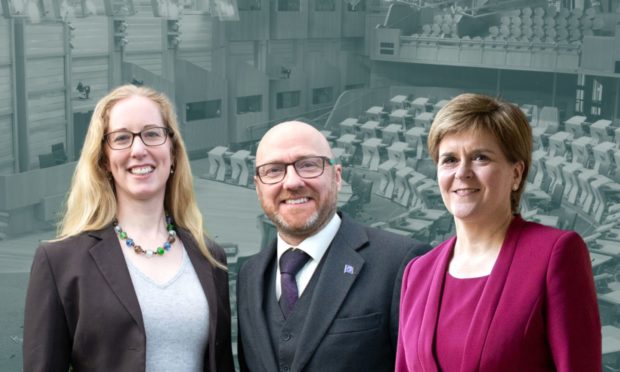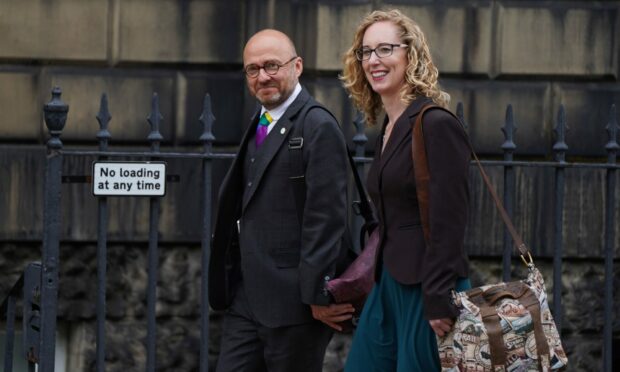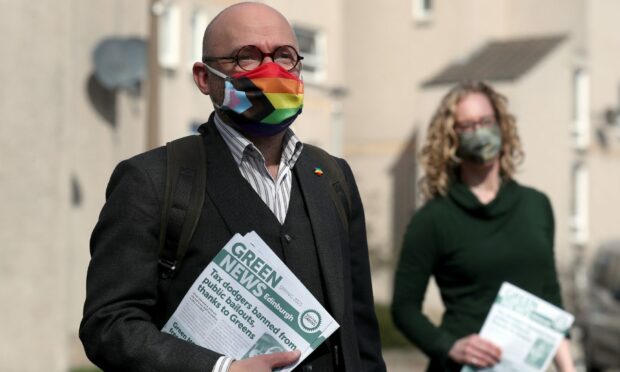Patrick Harvie has said the Scottish Greens did not want full Cabinet posts because of ongoing differences with the SNP on oil and gas and other issues.
The party’s co-leader also said he believed further topics would emerge which would have to be added to the “excluded list” where the two parties remain at odds.
Mr Harvie was speaking to the BBC after the deal with the SNP was approved by Scottish Green Party members at Saturday’s extraordinary general meeting (EGM) following a two-hour debate.
The agreement stipulates that public disagreement between the parties would only be allowed on a set of ten agreed topics, such as aviation policy, green ports, direct financial support to businesses involved in the aerospace, defence and security sectors, field sports and the economic principles related to concepts of sustainable growth and inclusive growth.
Under the deal, Mr Harvie and co-leader Lorna Slater will be given ministerial jobs, with one position to be responsible for decarbonising homes and transport and the rental sector, while the other will focus on green skills, the energy industry and the natural environment.
Speaking on BBC Radio Scotland’s Sunday Show, Mr Harvie was asked why they were not being given full Cabinet secretary jobs.
“The discussions between ourselves and the Scottish Government began on policy, and I think that is absolutely right,” he said,
“We have always been far more focussed on, ‘what is the government going to do differently as a result of this cooperation agreement’, rather than whose name is on which ministerial door.
“But as it became clear that there really wasn’t scope for a full coalition, because we had significant differences on a number of issues – we weren’t willing to accept the idea of complete collective responsibility – I think it would be appropriate not to take full Cabinet positions.”
Mr Harvie was quizzed on which areas made it impossible for the Greens to accept collective responsibility.
It’s a little bit more nuanced than a coalition, and it does mean that we didn’t feel that we could take complete collective Cabinet responsibility, and I think it would be reasonable, from the government’s point of view, that anyone who is a full member of the Cabinet is fully signed up to collective responsibility.”
“I think in the agreement you can see certain issues that we’ve listed as excluded, explicitly excluded from the agreement, for example on aviation policy, the future of the oil and gas industry, some of the Scottish Government’s economic plans, like free ports, or what they call ‘green ports’,” he said.
“But I think in between that and the shared programme, which we’ve both committed to delivering, there will be a great many issues coming up where we haven’t yet got agreement, we’ve committed to working together in a constructive way, to try to resolve differences, but we may ultimately have to add some of those to the excluded list.
“So it’s a little bit more nuanced than a coalition, and it does mean that we didn’t feel that we could take complete collective Cabinet responsibility, and I think it would be reasonable, from the government’s point of view, that anyone who is a full member of the Cabinet is fully signed up to collective responsibility.”
Scottish Conservative chief whip Stephen Kerr confirmed that Tory MSPs would vote against the Green MSPs being appointed ministers.
“We cannot accept the Greens’ ludicrous attempt to game the system by being in government and opposition at the same time,” he said.
“This nationalist deal is a coalition, according to the Greens’ own constitution. It will see the Greens join the government and be bound by agreement to support the SNP in votes.
“The Greens cannot have their cake and eat it. The Scottish Parliament will be weakened if they are allowed to hold government office and retain the rights of opposition parties, including receiving additional funds and a key position at first minister’s questions.”


